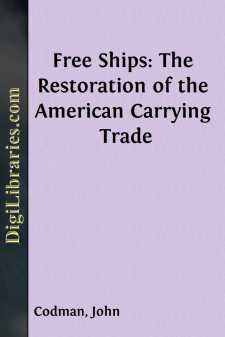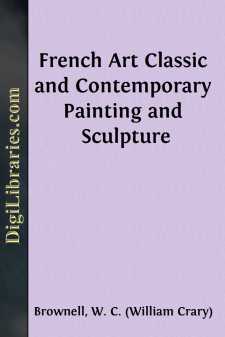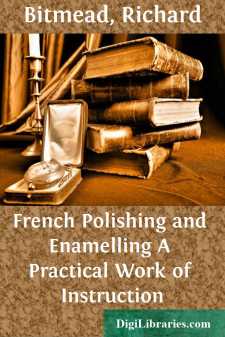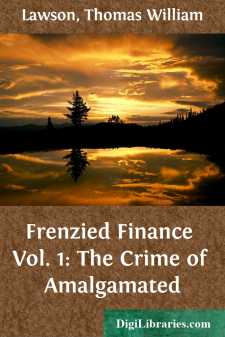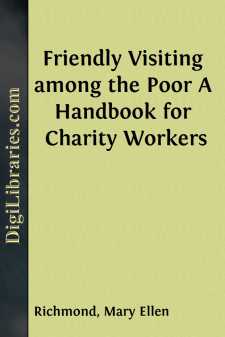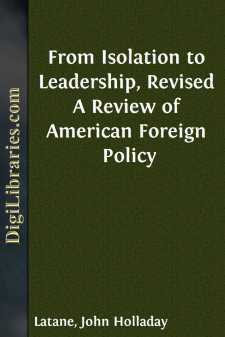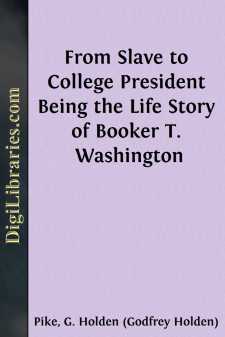Non-Classifiable
- Non-Classifiable 1768
Non-Classifiable Books
Sort by:
by:
John Codman
FREE SHIPS. The Restoration of the American Carrying Trade. It may seem surprising that an American House of Representatives should have been so ignorant of the meaning of a common word as to apply the term "commerce" to the carrying trade, when in the session of 1869 it commissioned Hon. John Lynch, of Maine, and his associated committee "to investigate the cause of the decadence of...
more...
More than that of any other modern people French art is a national expression. It epitomizes very definitely the national æsthetic judgment and feeling, and if its manifestations are even more varied than are elsewhere to be met with, they share a certain character that is very salient. Of almost any French picture or statue of any modern epoch one's first thought is that it is French. The...
more...
by:
Richard Bitmead
CHAPTER I. THE IMPROVING AND PREPARATION OF FURNITURE WOODS. For a French polisher to be considered a good workman he should, in addition to his ordinary ability to lay on a good polish, possess considerable knowledge of the various kinds of wood used for furniture, as well as the most approved method of bringing out to the fullest extent their natural tones or tints; he should also be able to improve...
more...
TO MY AUDIENCE SAINTS, SINNERS, AND IN-BETWEENS Before you enter the confines of "Frenzied Finance," here spread out—for your inspection, at least; enlightenment, perhaps—halt one brief moment. If the men and things to be encountered within are real—did live or live now—you must deal with them one way. If these embodiments are but figments of my mind and pen, you must regard them from a...
more...
PREFACE This little volume is intended as a handbook for those who are beginning to do charitable work in the homes of the poor, whether as individuals or as representatives of some church, or of some religious society, such as the King's Daughters, the Epworth League, or the Christian Endeavor Society. The term "friendly visitor" does not apply to one who aimlessly visits the poor for a...
more...
BOYHOOD TO MANHOOD. I. FROM OLD ENGLAND TO NEW ENGLAND. "I am tired of so much persecution under the reign of our corrupt king," said a neighbor to Josiah Franklin, one day in the year 1685, in the usually quiet village of Banbury, England, "and I believe that I shall pull up stakes and emigrate to Boston. That is the most thriving port in America." "Well, I am not quite prepared...
more...
I ORIGIN OF THE POLICY OF ISOLATION The Monroe Doctrine and the policy of political isolation are two phases of American diplomacy so closely related that very few writers appear to draw any distinction between them. The Monroe Doctrine was in its origin nothing more than the assertion, with special application to the American continents, of the right of independent states to pursue their own careers...
more...
by:
Daniel Defoe
FROM LONDON TO LAND’S END Sir, I find so much left to speak of, and so many things to say in every part of England, that my journey cannot be barren of intelligence which way soever I turn; no, though I were to oblige myself to say nothing of anything that had been spoken of before. I intended once to have gone due west this journey; but then I should have been obliged to crowd my observations so...
more...
CHAPTER I WANTED: A MAN—THE MAN FOUND Just at the most severe crisis of the war between France and Germany, over thirty years ago, a London newspaper, in describing the situation, remarked that France wanted not men, but a Man. During a whole generation which followed after the close of the gigantic and sanguinary conflict between the Northern and Southern States of the American Republic, a similar...
more...
by:
Alexander Irvine
CHAPTER I BOYHOOD IN IRELAND The world in which I first found myself was a world of hungry people. My earliest sufferings were the sufferings of hunger—physical hunger. It was not an unusual sight to see the children of our neighbourhood scratching the offal in the dunghills and the gutterways for scraps of meat, vegetables, and refuse. Many times I have done it myself. My father was a shoemaker; but...
more...


